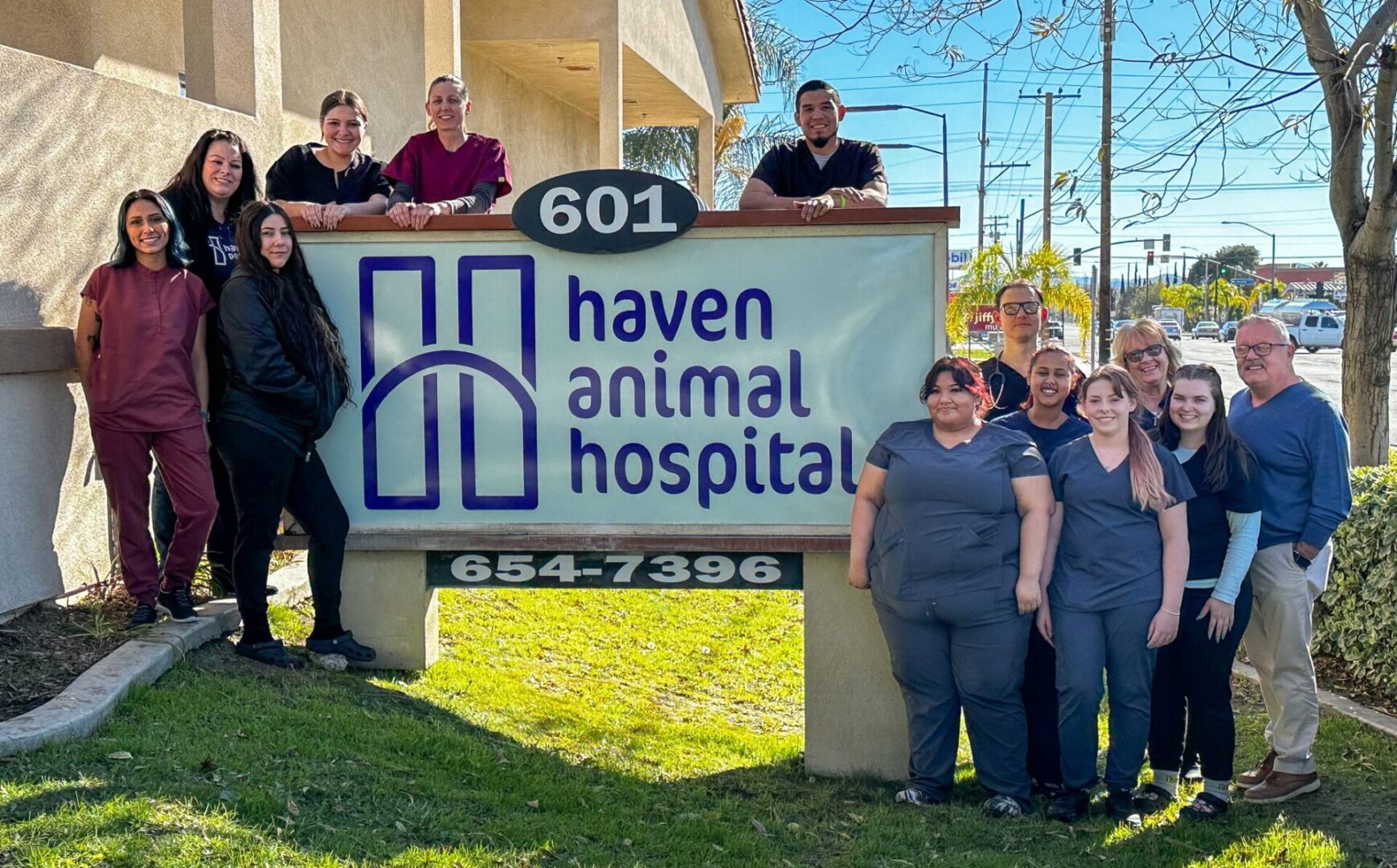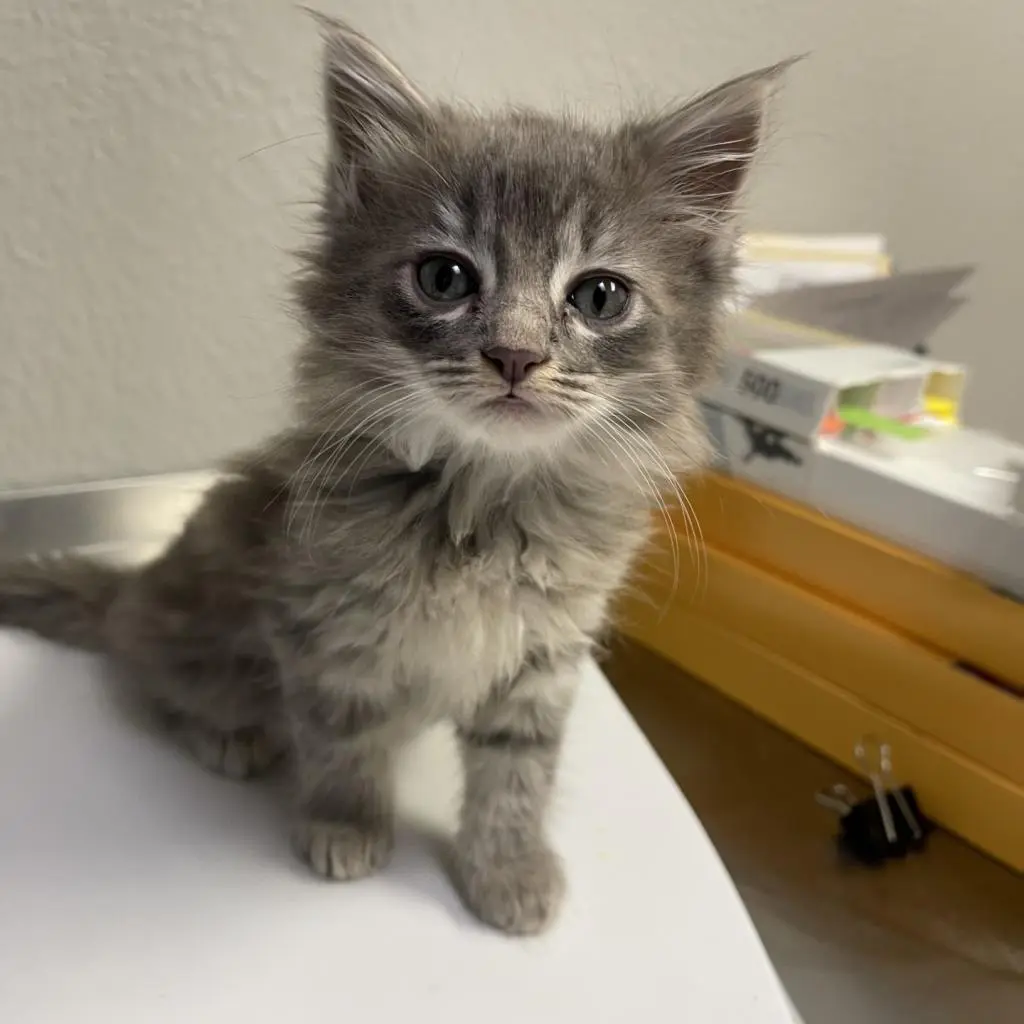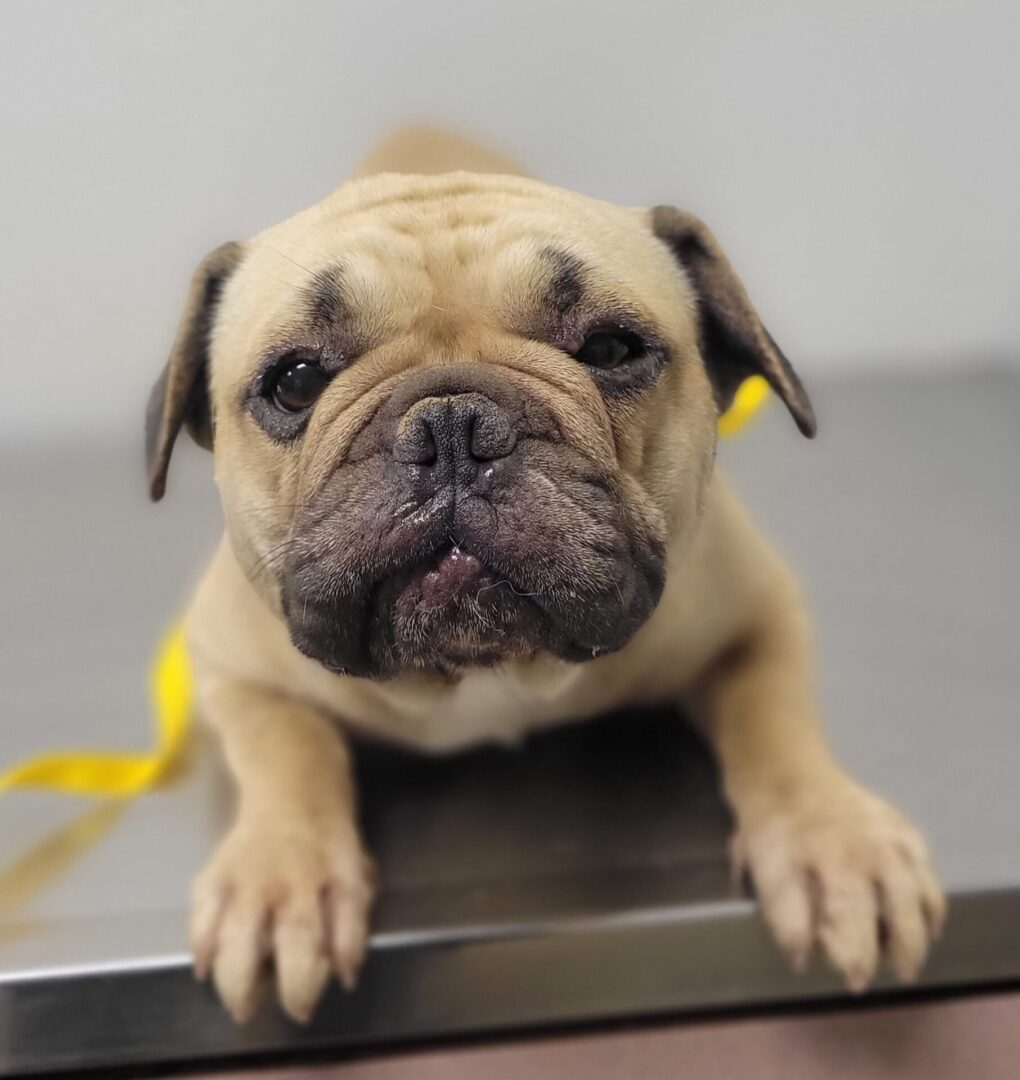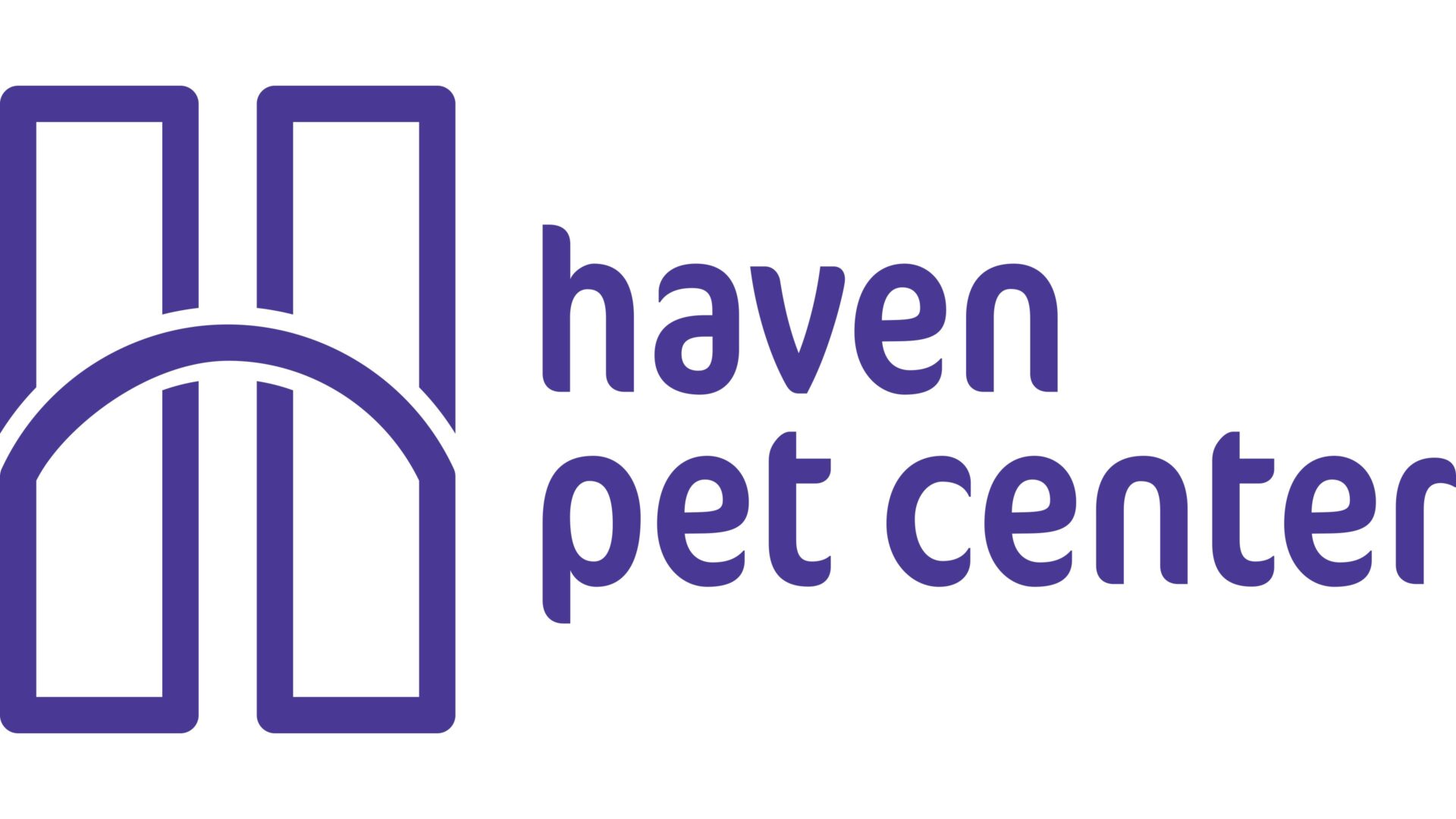
About Our Hospital
We are a full-service animal hospital in San Jacinto, CA. We offer effective medical aid for dental and surgical issues. From animal care to non-emergency veterinary care, boarding, and grooming, we provide comprehensive services.
Animal Care Is Our Top Priority
The heart of our operation centers around our dedicated focus on animal care. We ensure every pet under our watch is provided with nourishing food, a clean shelter, and regular medical check-ups and vaccinations. Additionally, our adoption initiative gives every animal a loving home and saves them from potential euthanasia in shelters.


WELLNESS - Preventive Care for Your Pet
Your pet’s health changes with age, just as yours does. But our pets age much faster than we do. Regardless of your pet’s age, you play a key role in helping him combat illness and remain as healthy as possible.
Remember, your pet cannot describe symptoms to you, but he will show you signs of disease or illness. Awareness of the signs of the most common diseases is one way to help reduce your pet’s risk. It’s a little scary to consider that 10% of pets that appear healthy to their owners during their regular checkups have underlying diseases.
We recommend an examination of all twelve of the body systems. We recommend a physical examination once a year on all normal pets. Because pets age more rapidly than humans, having a physical examination every year is important to discover any health problems. Pets are unable to communicate how they feel with words, so they are on a faster path toward illness than humans. Many pets mask their illness from us, so only an experienced veterinarian can perform a proper exam to determine the state of wellness. Pets with chronic illness may need to be seen more frequently than once yearly.
The comprehensive testing of your pet's health is imperative to ensure a thorough understanding of their well-being. Physical examinations alone may not uncover underlying illnesses, making routine testing crucial.
Blood values in pets can fluctuate subtly over time, leading to seemingly "normal" test results. However, each animal is unique, and it's essential to establish baseline values during periods of good health. This baseline serves as a comparison for future test results, aiding in the early detection of any abnormalities.
Regular monitoring of these results allows for prompt diagnosis and intervention, leading to improved outcomes, enhanced quality of life, and potentially reduced treatment expenses. To facilitate this proactive approach, we recommend a Wellness Blood Screen every six months. This screen provides insights into internal organ functions that physical examinations cannot discern, such as liver and kidney function, infection presence, or anemia indicators.
Additionally, a urinalysis examines the biochemical properties of urine, aiding in the identification of urinary tract disorders. Findings such as blood or white blood cells suggest inflammation, while changes in urine acidity may indicate infection. Microscopic evidence of crystals or casts can signal the presence of stones or early kidney disease. Moreover, urine concentration reflects kidney function and hydration status, while the presence of glucose suggests diabetes. Further biochemical tests and urine cultures may be recommended if infection is suspected.
To address intestinal parasites, we advocate for Wellness Intestinal Parasite Testing every six months. Microscopic stool examination identifies parasites that could pose a threat to your pet's health or your family's well-being.
Tick-borne diseases like Lyme disease, ehrlichiosis, and anaplasmosis are significant concerns due to their transmission through tick bites. Given the potential for multiple infections simultaneously, regular monitoring and preventative measures are crucial.
In cats, Feline Leukemia Virus (FeLV) and Feline Immunodeficiency Virus (FIV) pose serious health risks, potentially leading to immune system compromise and cancer. Even asymptomatic cats can carry these viruses, emphasizing the importance of routine testing, especially in multi-cat households. FeLV spreads through various bodily fluids, including saliva, while FIV primarily transmits through bite wounds.
In conclusion, proactive and regular testing is paramount in safeguarding your pet's health and preventing the spread of contagious diseases, ultimately ensuring their well-being and that of your family.
Vaccines play a crucial role in preventing numerous illnesses that can impact pets. Ensuring your pet is vaccinated is one of the simplest and most effective ways to promote their longevity and well-being. It's important to note that there are various vaccines available, each targeting specific diseases and offering different types and combinations.
Here's a breakdown of some common vaccines:
For Dogs:
-
DA2PPv: This vaccine guards against diseases caused by canine distemper virus, adenovirus type 1 (hepatitis), adenovirus type 2 (respiratory disease), canine parainfluenza virus, and canine parvovirus. Puppies typically receive a series of vaccinations, and adult dogs should be vaccinated annually.
-
Bordetella: Protects against canine infectious tracheobronchitis, commonly known as "canine cough," caused by canine parainfluenza and B. Bronchiseptica. Both puppies and adult dogs should receive this vaccine annually.
-
Flu Bivalent: Provides protection against H3N2 and H3N8 strains of canine influenza. The initial vaccine is administered, followed by a booster three weeks later, and then yearly thereafter. This vaccine is particularly important for social dogs that frequent boarding facilities, grooming salons, dog parks, or attend classes.
-
Rabies: Mandatory by California law for all puppies and dogs over three months of age.
For Cats:
-
HCP: This vaccine shields against feline rhinotracheitis, calicivirus, and panleukopenia. Kittens typically receive a series of vaccinations, while adult cats should be vaccinated annually.
-
FeLV: Protects against feline leukemia virus. The initial vaccine is followed by a booster three weeks later, and then administered every two years. This vaccine is recommended for outdoor or at-risk cats. Testing for FeLV and FIV should be conducted before vaccination and repeated annually for outdoor cats.
-
Rabies: Advised for all cats over 16 weeks of age.
By adhering to a proper vaccination schedule tailored to your pet's needs, you can significantly reduce the risk of them contracting preventable diseases and ensure their continued health and happiness.
Fleas and ticks are known as ectoparasites, or parasites that live on the outside of the host animal. Both fleas and ticks survive by taking a blood meal, which means they must bite their host to draw blood for food. While the bite itself is small, flea saliva can cause severe allergies, dermatitis, anemia, itching, and infection. Tick bites can also cause infection, abscesses, paralysis, and even death. In addition to allergic reactions, fleas and ticks can also transmit a variety of diseases to cats. Cats aren’t as susceptible to tick-borne diseases as dogs, but there is still a risk of illness. In some cases, ticks can also transmit diseases to cats that can then infect humans (e.g., zoonotic diseases). The best way to prevent flea and tick allergies, or to reduce the risk of spreading diseases, is to prevent infestation in the first place. Fortunately, there are a variety of products to help keep your pet free of parasites.
Pre-Op Visit
To prepare for surgery, all pets start with a complete examination. We will verify all vaccinations are current, any overdue vaccines must be updated prior to scheduling surgery. To ensure the safety of all pets in our care, we require all vaccines be performed by a veterinarian. Cats must be current on rabies and HCP vaccines. Dogs must be current on rabies, DAPP, and Bordetella vaccines.
An ECG heart function test is performed to determine the type of medications that can be used for surgery.
Preventive care lab profile is recommended for pets of all ages to confirm internal organ function is normal prior to undergoing surgery. Lab work is required on pets with health concerns and pets 2 years and older. Please bring a fresh stool sample collected within 4 hours of the visit or refrigerate no longer than 12 hours prior to visit.
Additional testing or treatment may be needed based on your pet’s examination findings.
During your pre-op visit we will collect prepayment for surgery. This will ensure you can be scheduled in a timely manner once the test results are in.
Surgical Visit
Fasting is required for anesthesia. We ask that you do not allow access to food or water after 8pm the night before surgery.
You will drop your pet off in the morning on the day of surgery. We will keep in touch with you throughout the day with status updates on your pet.
An additional pre-operative examination is performed on surgery day to confirm there have been no changes to your pet’s health.
We will place an intravenous catheter* to administer injections. Your pet will receive medications for pain management, to control nausea/vomiting, antibiotics to prevent infection, local anesthesia at incision site as well as general anesthesia. We maintain your pet on inhalation gas anesthesia during the procedure. We monitor heart rate and blood oxygen levels while your pet is anesthetized.
*Male cats will not receive IV catheter
We utilize laser therapy to stimulate the cells and tissue, reduce inflammation and minimize pain after surgery. Laser therapy is highly recommended but not required.
Many pets receive internal dissolving sutures, although some require external sutures or staples that will need to be removed in 2 weeks. All pets are sent home with an E-collar to prevent licking and chewing at the incision site. The E-collar will remain in place until the recheck in 2 weeks, or longer if not completely healed at that time.
We often send home sedatives after a spay or neuter to facilitate restricted activity. There will be a charge for this prescription.
Spay & Neuter Pricing
Male Cat Neuter $147
Female Cat Spay $322
Male Dog under 70 lbs $495
Male Dog Over 70 lbs $554
Female Dog under 70 lbs $611
Female Dog over 70 lbs $669
Post-Operative Instructions:
After arriving at home, you should keep your pet warm and comfortable by providing a soft, clean bed, ideally in a quiet and draft-free room at a comfortable room temperature (68-75°F). Your pet should remain indoors overnight, going outside only for short leash walks (for dogs) as needed to urinate and defecate. For most procedures, your pet's activity should be restricted for one full week after surgery. It is essential to avoid running, jumping, and other strenuous activities that could cause excessive strain on the wound.
A few hours after arriving home, you may offer your pet approximately half of his normal dinner. If he eats this and still seems hungry, you may offer the rest of his meal approximately one hour later. Some pets experience nausea after general anesthesia, so dividing the meal into smaller portions may decrease the risk of nausea and vomiting. Unless otherwise instructed, your pet's access to water should not be restricted. It is essential to avoid running, jumping, and other strenuous activities that could cause excessive strain on the wound. Your pet was given a general anesthetic or a sedative. These drugs can take several hours to wear off and may cause some patients to appear drowsy for a day or so. Over the next 24-48 hours, your pet's behavior should gradually return to normal. However, if you are at all concerned, do not hesitate to contact the hospital. If your pet has a shaved area on one of his front legs, this is typically where the anesthetic or sedative was administered. Additionally, many pets receive intravenous (IV) fluids through an IV catheter during surgery and the hair must be removed to allow the area to be disinfected properly before inserting the catheter. Sometimes this area will be bandaged; if so, you can remove the bandage the day after the surgery unless otherwise instructed. Your pet may have had a tube placed in the trachea (windpipe) during anesthesia, to administer oxygen and anesthetic gas. This can occasionally cause mild irritation and a slight cough. A mild post-surgical cough will typically diminish over the next few days. If coughing persists or worsens, contact the hospital. Your pet may instinctively try to clean his surgical site by licking. If you have been given an Elizabethan-type protective collar (often referred to as a "cone" or E-collar), please ensure it is used to prevent chewing. If you have not been given an E-collar and your pet begins licking or chewing the incision, please contact the hospital and request one. If your pet does succeed in removing any stitches, please call the hospital as soon as possible. Not surprisingly, many pets find these collars strange at first and will attempt to remove them. However, after a short period most pets will settle down and tolerate wearing the collar. It is better to keep the collar on all the time, rather than to take it on and off. It only takes a few seconds of chewing for a pet to remove his stitches or damage the surgery site. If your pet does succeed in removing any stitches, please call the hospital as soon as possible. The incision should normally be clean, and the edges should be together. The skin surrounding the incision should be a normal or slightly reddish-pink color. In pale-skinned pets, bruising is often seen around the surgical site. This may not appear until a few days after the operation and in some cases can seem excessive in comparison to the size of the incision. This is due to seepage of blood under the skin edges and is a normal occurrence. In some cases, a small amount of blood may seep intermittently from a fresh incision for up to twenty-four hours, especially if the animal is active. You should be concerned and should contact the hospital immediately if you see any of the following at the surgical site:
- Continuous or excessive blood draining.
- Intermittent blood seepage that continues for more than twenty-four hours.
- Excessive swelling or redness of the skin.
- Unpleasant smells or discharge.
In general, most skin stitches or sutures are removed 10-14 days after the operation; the actual time depends on the type of surgery performed. You will be instructed when your pet should return for suture removal. In some cases, your veterinarian may use sutures that do not require removal. These sutures are placed under your pet's skin and will dissolve in the coming weeks. If you have any questions regarding your pet's stiches, please contact your veterinarian. In most cases, your pet's activity will need to be restricted for at least 2 weeks, or until the sutures are removed (if the sutures are to be removed). During this time, it is important to limit your pet's activity to prevent the incision from opening. It is also essential to avoid swimming or bathing during this time, as moisture can help introduce bacteria into the wound and lead to infection. After surgery, your pet may be sent home with pain medications or other oral medications. If you have been given any medication to give your pet, please READ THE LABEL CAREFULLY and ensure that you administer all medication as instructed. If you are having trouble treating your pet, please contact the hospital for advice.
Heartworms are spread by mosquitoes, so any area of the country that has mosquitoes, even just a few of them, can also have heartworm disease. Pets don’t just need prevention during warm-weather months. Heartworm preventives work by treating heartworms that already infected the pet within the past month or longer; meanwhile, preventives need to be given on time, every time to be effective.
Heartworm preventives come in different forms, including monthly chewable pills and topical medications. Some preventives only prevent heartworms, and some protect pets from many different parasites, including heartworms, intestinal worms, fleas, ticks, and mites.
Routine dental cleanings are an important part of general health care maintenance for your pet. The teeth are a potential source for life-threatening infections to the heart, liver, and kidney, if periodontal disease develops. Pet's teeth are very similar to human's teeth and dental disease is very common in pets. Routine dental care is recommended because maintaining good oral health will greatly improve the health and breath of your pet. Teeth cleaning procedures completed at our hospital, followed by our recommended home care treatments, are the best way to ensure the long life of your pet's teeth.
We recommend strategic deworming for your pet every 6 months. Strategic deworming assumes that your pet has, or has been exposed to, parasites and that these parasites are a threat to your pet, your family, and the environment. Strategic worming is recommended by the Centers for Disease Control to prevent transmission of parasites from pets to people. We will need to repeat this treatment in 2 weeks to be effective. For more information on strategic deworming please visit the Centers for Disease Control Website. All puppies and dogs should be dewormed regularly after 4 weeks of age. We recommend deworming every 6 months unless your pet is on a monthly preventative.
Pyrantel pamoate - Treats hookworms and roundworms in dogs and cats. Deworming is repeated in 3 weeks. Many parasites are zoonotic, meaning they can be transmitted to humans. Dogs and cats should be examined and fecal tested at least once yearly.
A HomeAgain microchip is your pet's permanent ID. A pet microchip—the size of a grain of rice—goes beneath your pet's skin. This permanent ID can never be removed or become impossible to read. HomeAgain uses this ID to contact you and reunite you with your pet.
Grooming services
Indulge your furry friend in a premium grooming experience at Haven Animal Hospital. Our expert groomers are dedicated to elevating your dog's well-being through personalized services designed for all breeds and sizes.
Tailor your pup's grooming session with deluxe add-ons, ranging from conditioning treatments to chic pawdicures. Discover luxury and attentive care at Bubble & Bows, where pets exit not only looking but also feeling their absolute best. Treat your cherished companions to the royal pampering they truly deserve!
SERVICES:
- Bathing, Grooming, and Styling
- Hand Drying
- Nail Trim or Grinding
- Medicated Baths & Conditioning
- Anal Gland Express
- Teeth Brushing & Facials
- Sedation Grooming (Upon Request)
- Cologne Upon Request
- Shed Less
- Upgraded Shampoo & Conditioner
POTENTIAL ADDED FEES:
- Impacted Coat-Mild
- Impacted Coat-Severe
- Matted Coat- Mild
- Matted Coat-Severe
- Live Fleas & Ticks
- Medicated Shampoo
To book your pets grooming appointment please give us a call at 951-654-7396.

Prerequisites
All pets must:
Have a current waiver on record; valid for 3 years. Complete one waiver for each pet.
Be current on vaccines; at least 14 days prior to stay. Required vaccinations for cats; HCP, Rabies. Required vaccinations for dogs; Da2PP, Bordetella, Rabies
Be non-aggressive towards other pets and people.
Be leashed or crated when entering and exiting.
Payment Options
Payment is expected when services are rendered. We do not offer billing or payments.
We accept cash, debit cards, credit cards* (Visa, Mastercard, Discover, American Express), PayPal, CareCredit, and ScratchPay. All cards must be signed by the owner of the card with a valid photo ID. We do not accept checks.
*We apply a 3% surcharge to credit card transactions, which does not exceed our cost of acceptance. Final price for paying with credit card will be displayed to you at checkout. Debit cards are not subject to a surcharge.
Boarding and Day Care
Bed & Biscuit Inn offers safe, fun, and trustworthy overnight boarding and daycare services for dogs and cats.
Weekend boarding drop-off and pick-up available by appointment.
Dogs will enjoy hours of group play in our spacious play yard. All dogs staying at Bed & Biscuit Inn are screened to ensure they are a fit for our group play environment.
We have a dedicated Instagram page to allow owners to view daily pictures and videos of dogs and cats while in our care.
Prerequisites
All pets must:
Have a current waiver on record; valid for 3 years. Complete one waiver for each pet.
Be current on vaccines; at least 2 days prior to stay.
Required vaccinations for cats; HCP, Rabies.
Required vaccinations for dogs; Da2PP, Bordetella, Rabies
Recommend vaccinations for dogs; Influenza and Leptospirosis
Be at least 4 months of age.
Be spayed or neutered if 6 months of age or older.
Be in good general health and free of fleas and ticks.
Be non-aggressive towards other pets and people.
Be leashed or crated when entering and exiting Bed & Biscuit Inn.
Dogs only: Pass a temperament test. Repeated temperament test may be required if there has been a time lapse since last stay. Charges apply to temperament test visits.
Boarding requests are subject to availability.

